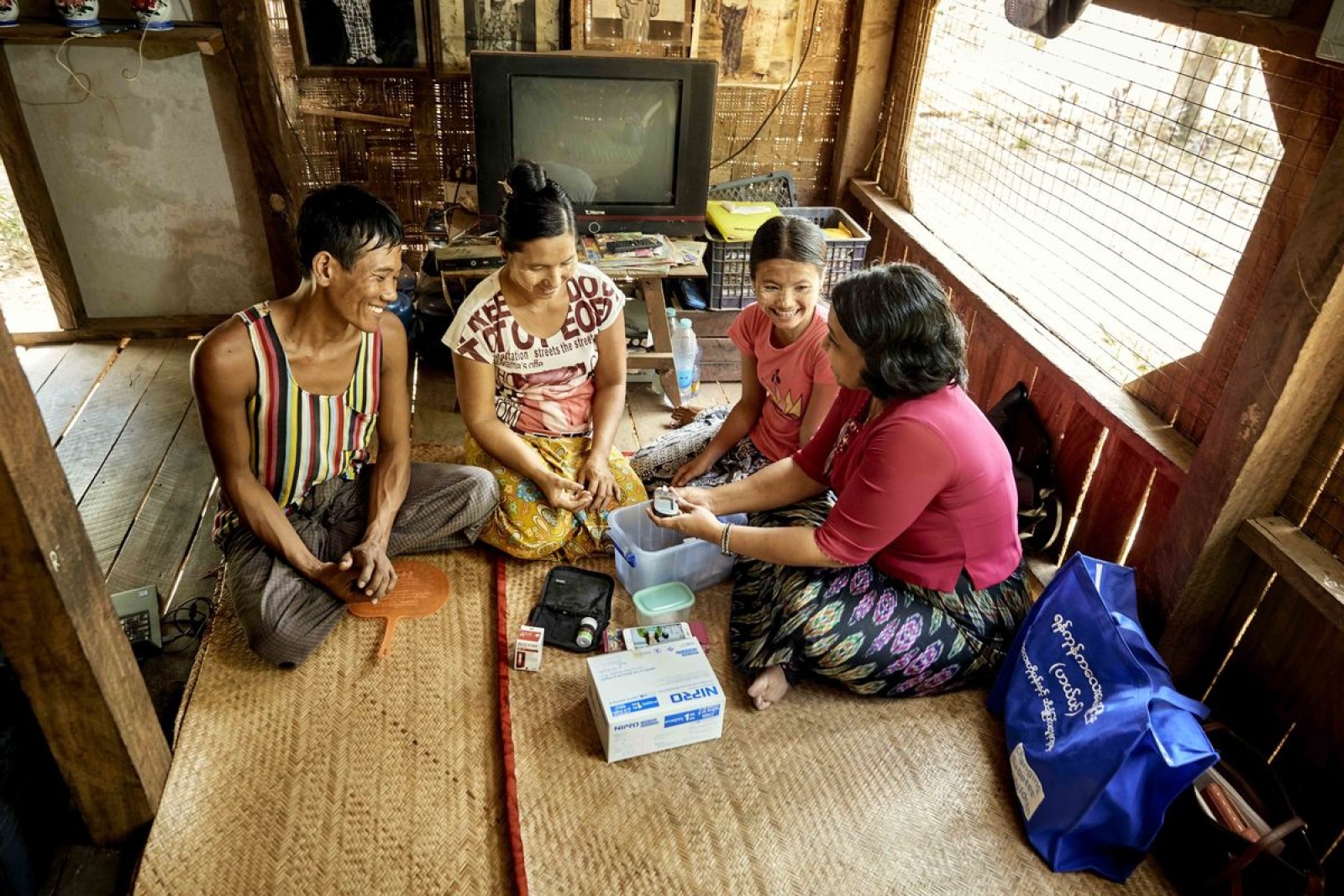Foundation to deepen its work moving pharma companies on access to diabetes care

There are more than 400 million people with diabetes, and cases are surging worldwide. Safe and effective insulin products are available. Yet, as reported by the International Diabetes Federation, tens of thousands of people with type 1 diabetes (T1D) and more than 30 million with type 2 diabetes (T2D) who require insulin do not have access to a reliable and affordable supply.
The situation is most dire for vulnerable populations living in low- and middle-income countries. For these populations, healthcare systems are generally not equipped to support the management of this chronic condition, and the costs must typically be paid out of pocket by the patient and their family. The high burden of diabetes has brought it into the scope of the Access to Medicine Index since 2008.
“The companies that produce insulin are a critical link in the chain of stakeholders needed to deliver diabetes care.”
In its 2021 Global Diabetes Compact, the World Health Organization is spearheading a new global effort to ensure that all people diagnosed with diabetes have access to quality care and treatment that is equitable, comprehensive and affordable. The Compact will set global coverage targets for diabetes care, and has identified access to diagnostic tools and medicines – particularly insulin – in low- and middle-income countries as one of the most urgent areas of work. The pharmaceutical companies that produce and supply insulin are critical in the chain of public- and private-sector stakeholders needed to deliver a comprehensive package of solutions.
New solutions for insulin companies to address access to diabetes care
In 2022, the Access to Medicine Foundation will deepen its focus on diabetes care in low- and middle-income countries, supported by funding from The Leona M. and Harry B. Helmsley Charitable Trust. Through a programme of activities, the Foundation aims to identify new solutions for insulin companies to expand access to diabetes care, informed by a fresh assessment of current practice. This programme will draw on the Foundation's long experience of engaging healthcare companies with global health priorities to drive the uptake of good practice by companies with a pivotal presence in the insulin market.
Claudia Martínez, who will lead the Foundation's work in this area, says: "Too many people in low- and middle-income countries are last in line when it comes to life-saving diabetes treatments. The need to address these gaping disparities could not be more urgent nor more critical."
The Foundation will lead bilateral engagements with experts from across industry and global health, as well as a dedicated Amsterdam Session, which will be a workshop for industry representatives and their partners working directly on access programmes for diabetes patients to exchange practical insight into what works.
“The Foundation will focus on five key players in insulin markets.”
The initial focus will be on those human insulins, insulin analogs and insulin biosimilars, as well as glucagons, that are produced, supplied and made available by a core group of five companies: Biocon, Eli Lilly, Novo Nordisk, Sanofi and Viatris.
Drawing on data gathered for the Access to Medicine Index, the Foundation will also bring out a new study on how pharma companies are approaching access to diabetes care in low- and middle-income countries. This report will unpack critical access gaps and provide recommendations for future action.
Tracking the industry's response to the rise of non-communicable diseases
Since 2008, the Access to Medicine Foundation – through its Access to Medicine Index – has evaluated how large research-based pharmaceutical companies address the rising global burden of non-communicable diseases (NCDs), including cancers and diabetes.
Of the pharma companies that are already tracked by the Index, three are key players in the global insulin market: Eli Lilly, Novo Nordisk & Sanofi. These are the largest global manufacturers of insulin, currently accounting for over 90% of the market in volume and value. The Foundation has examined their access efforts in regards to insulin over several years, as part of the broader Access to Medicine Index research programme.
"Our Index research has identified companies using a variety of approaches to provide access to diabetes treatments for specific groups in some low- and middle-income countries," says Claudia. "These include insulin donation programmes and equitable pricing strategies that take at least some account of the ability to pay of populations at lower levels of the income pyramid."
Claudia concludes: "By deepening our work on this chronic disease, we will develop a blueprint for future action and raise the bar for companies that can radically expand access to diabetes care."